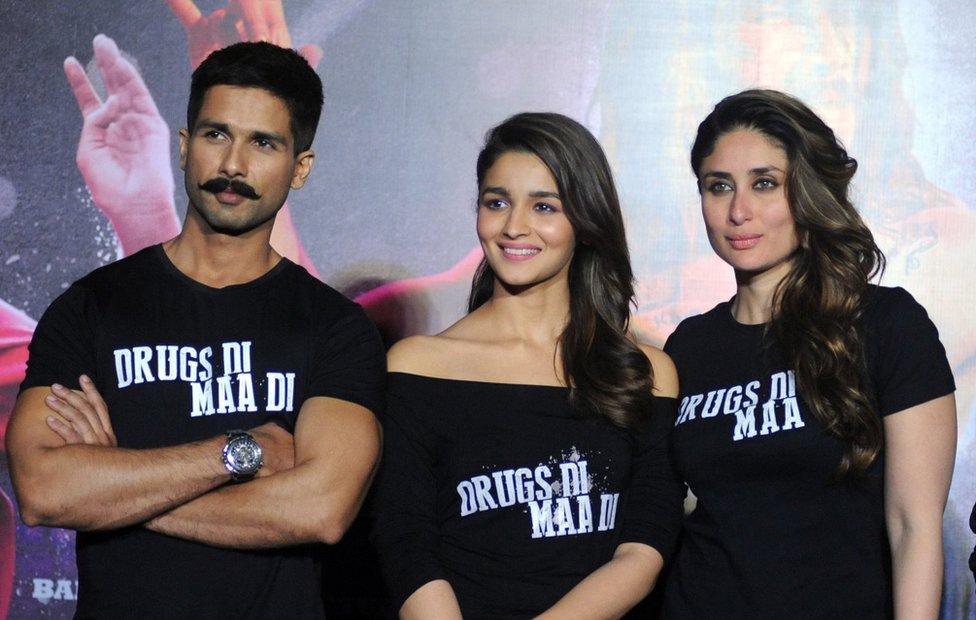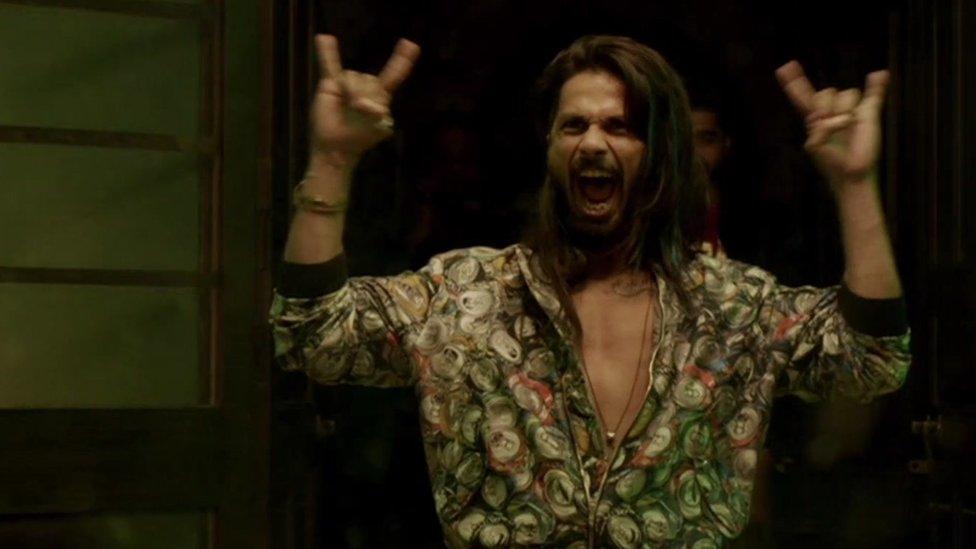Udta Punjab: India court overrules censor cuts to film
- Published

The film's actors say the film is not against any specific state
A controversial film depicting drug abuse in India's Punjab state will be released on Friday with just one cut, the Bombay High Court has ruled.
Dismissing objections by the censor board which had wanted 89 cuts, the court said the film must be certified for release in the next 48 hours.
Judges ordered one scene showing a character urinating to be removed, and a disclaimer to be changed.
The producers of the film described the ruling as a victory for democracy.
They had gone to court, saying the demands by the Central Board of Film Certification (CBFC) set a dangerous precedent.
The film board had said they thought the movie portrayed Punjab in a bad light. The proposed cuts included removing every mention of the word "Punjab" from the film, deleting swear words and also a number of other words such as "parliament", "legislators" and "elections".
The censors had also said that the film questioned the sovereignty of India, but the court rejected the argument.
"We have read the script in its entirety to see if the film encourages drugs. We do not find that the film questions the sovereignty or integrity of India by mentioning the names of cities, or referring to a state or by a signpost," the judge said.
The court observed that the board's job was to certify and not censor.
The film depicts the problem of drug abuse in the northern Indian state of Punjab
The film's director, Abhishek Chaubey, told reporters outside the courtroom that he had accepted the order to delete a scene showing the lead character urinating into a crowd while under the influence of drugs.
He said he would also add a disclaimer specifying that the film was not against any specific state, and did not support drug abuse or the use of swear words.
Last week the court told defence lawyers the film industry was "not made of glass" to be handled with care and added that there was no need for excessive censorship as the public was the "biggest censor".
The board has the option of appealing against the verdict in the Supreme Court.
Ahead of the ruling, censor board chief Pahlaj Nihalani had given ground, telling reporters on Sunday the film could be released with 13 cuts.
The film board has recently come in for criticism for its controversial decisions to remove scenes in several films, including some Hollywood movies, before they were allowed to be screened in cinemas.
- Published7 June 2016
